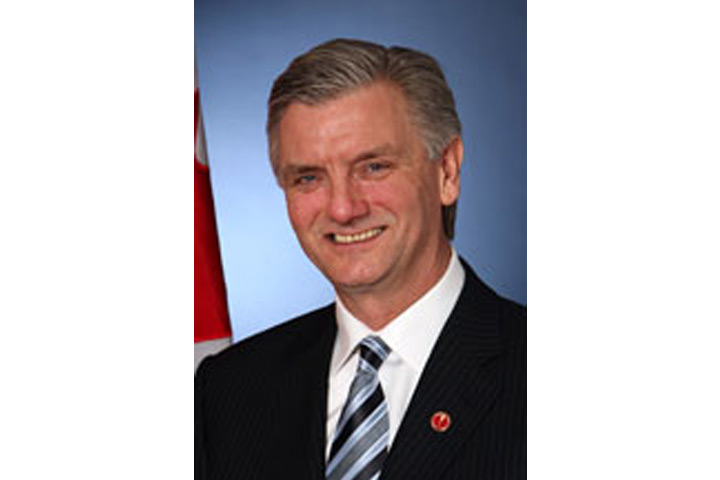No one forced New Brunswick Senator John Wallace to step down after eight years in the Senate, but he believes it’s the right thing to do – even though all other senators appointed at the same time have decided to stay on.

Prior to being appointed by then-Prime Minister Stephen Harper, Wallace and other senators were asked if they would support Senate reform, including term limits of eight years.
READ MORE: What to expect as ‘modernization’ comes to the Senate
That key question guided Wallace’s decision to leave before the mandatory retirement age of 75.
“All of that made sense to me then, and all of that makes sense to me now,” Wallace told Global News.
In 2009, 18 Conservative senators, including Pamela Wallin, Mike Duffy and Patrick Brazeau, were appointed to the upper chamber.
After being suspended from the Senate in 2013 for questionable living expenses, which led to an RCMP criminal investigation, Friday Brazeau made it clear he has no intention of stepping down.
READ MORE: Six senators fed up with partisanship form new ‘working group’
“I’ve just recently returned to the Senate after a forced leave of absence of three-and-a-half years,” he said.
“I’m 42-years-old. The last thing on my mind is talk about retirement from the Senate.”

Get daily National news
Several other senators contacted by Global News said they, too, aren’t considering early retirement.
Nova Scotia senator Michael MacDonald explained when he was appointed, he was asked if he supported elected term limits for members of the upper chamber.
WATCH BELOW: Reform in the Canadian Senate
The Harper government took the question to the Supreme Court.
In a 2014 ruling, the unanimous decision came back that any kind of reform – including imposing term limits – would require the consent of seven provinces, making up half the country’s population.
Many senators say the court’s decision meant they were no longer bound by a commitment they may have made at the time.
“I was never asked to arbitrarily resign after eight years in the absence of such legislation,” said Sen. MacDonald.
Four of the 18 senators appointed with Wallace have already reached the mandatory retirement age of 75; Nova Scotia senator Fred Dickson passed away in 2012, one year short of retirement.
A spokesperson for Quebec Senator Leo Housakos told Global News the idea of term limits never came up in conversations during the appointment process.
READ MORE: Why abolish the senate? “Because it’s 2015,” says Premier Wall
“There was no such pledge to step down after eight years,” said Jacqui Delaney.
Wallace won’t comment on what others decide regarding their futures in the upper chamber, but he said he believes he’s doing the right thing.
“New blood is always needed, there has to be a turnover…Eight years was a reasonable maximum,” he said.
“A Senate position doesn’t belong to any of us, it’s not something we hang on to.”
The 67-year old left the Conservative caucus on Nov. 18, 2015, citing irreconcilable differences between himself and the partisan nature of the Senate.
Wallace championed the new role of non-affiliated senators and fought hard to have independent members given equal opportunity to serve on committees as senators with political affiliations.
READ MORE: New Brunswick Senator John Wallace resigns from Conservative caucus
“The Senate has strayed from its original responsibility as set out by Sir John A. Macdonald,” said Wallace, of the upper chamber’s adherent nature.
As he leaves, Wallace believes the institution is in better shape because of reform started under Harper and continued by Prime Minister Justin Trudeau.
Wallace’s former Conservative colleagues criticize the arm’s-length advisory board that recommends Senate appointments to Trudeau, saying it is still partisan.
“We will see where it goes as people retire and new people are appointed,” he said.
“The dust will continue to settle.”





Comments